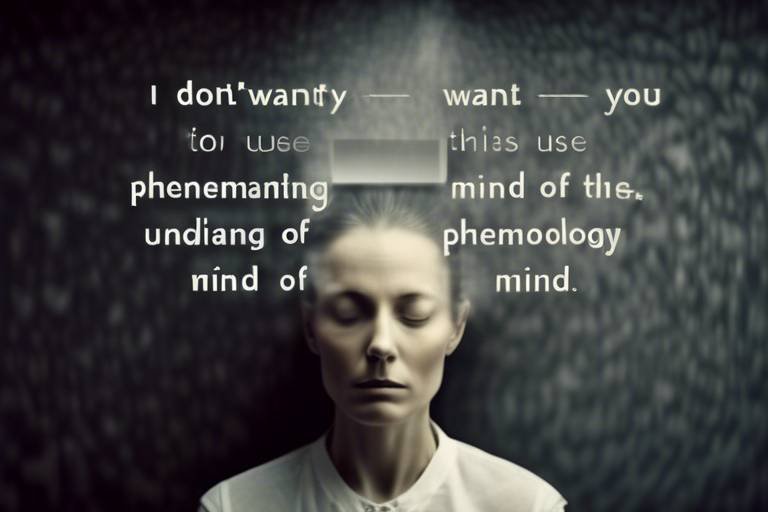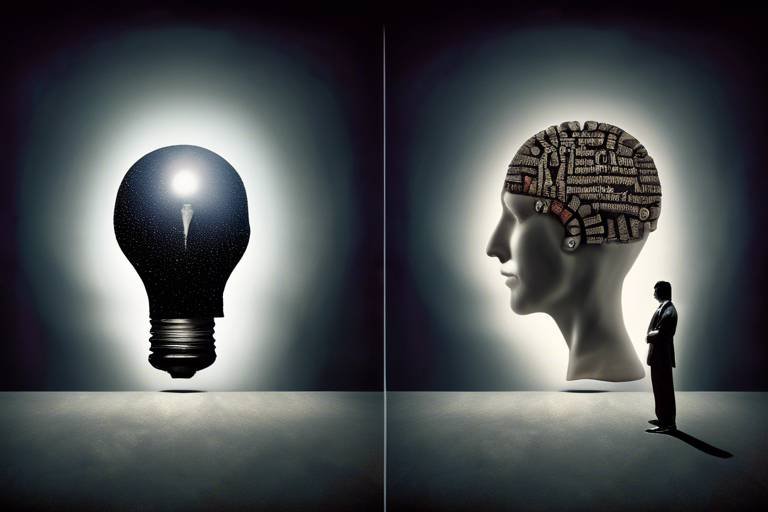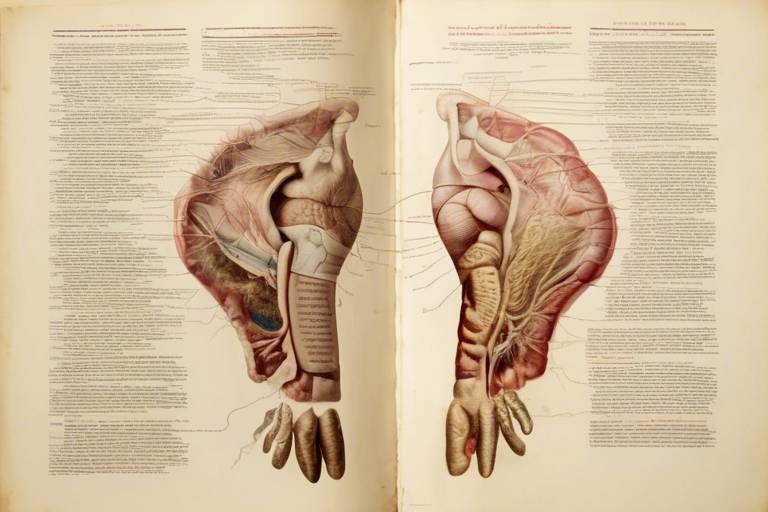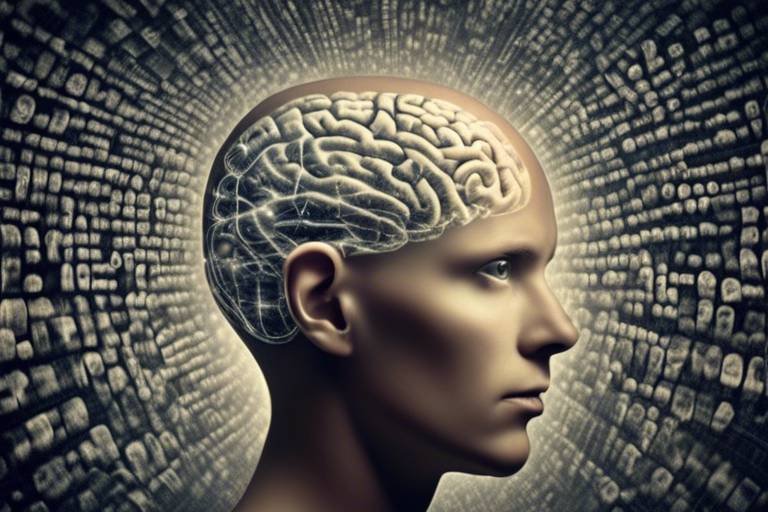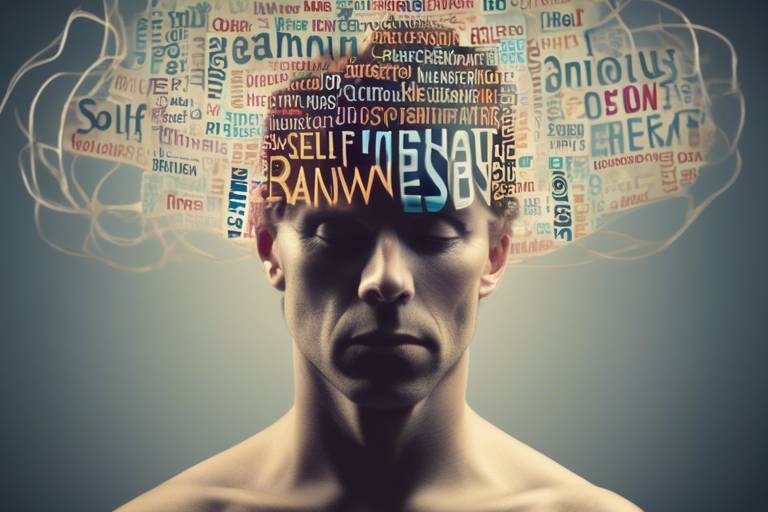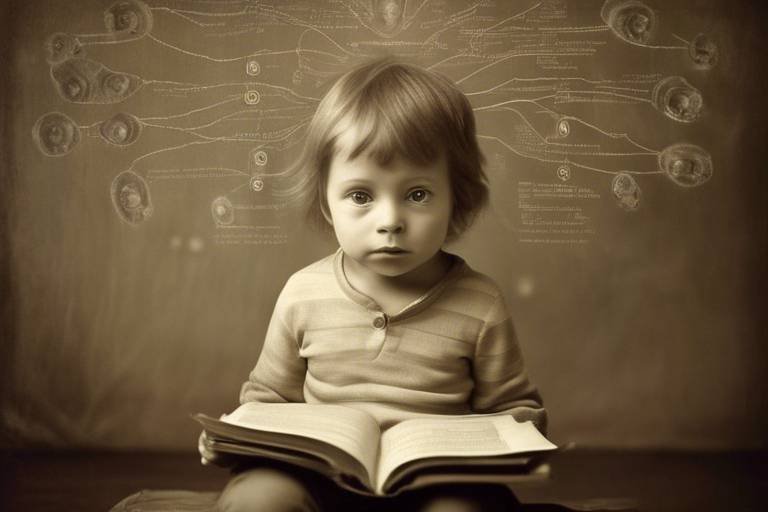Consciousness - An Inevitable Human Experience
Have you ever paused to ponder the very essence of your existence? Consciousness is that remarkable phenomenon that allows us to experience life, to be aware of our thoughts, emotions, and surroundings. It's the lens through which we interpret the world, shaping our reality in profound ways. This article explores the multifaceted nature of consciousness, its significance in human experience, and the various theories surrounding it. We will delve into the depths of awareness, perception, and the essence of being, inviting you to embark on a journey of self-discovery and intellectual curiosity.
Understanding consciousness involves examining what it means to be aware. Consciousness is not just a passive state; it is an active engagement with our environment and our inner selves. Philosophers and scientists alike have grappled with the definitions and implications of consciousness. Some define it as the state of being aware of and able to think about one's own existence and surroundings, while others emphasize its role in perception and interpretation. This rich tapestry of definitions shapes our comprehension of consciousness and its implications for human existence.
Various theories attempt to explain consciousness, ranging from dualism to physicalism. Each theory offers a unique perspective, contributing to our understanding of the conscious experience. Dualism posits that consciousness exists separately from the physical body, while physicalism argues that consciousness is a product of physical processes within the brain. These theories not only provide frameworks for understanding consciousness but also highlight the limitations of our current knowledge. As we explore these theories, we uncover the complexities of what it means to be conscious.
The debate between dualism and physicalism addresses whether consciousness is separate from the physical body or a product of it. Dualists, like René Descartes, argue that the mind and body are distinct entities, suggesting that consciousness transcends physical existence. In contrast, physicalists maintain that everything about consciousness can be explained through brain processes. This comparison is not merely academic; it has profound implications for understanding human experience, identity, and the nature of reality itself.
Exploring the origins of dualism reveals the influence of key philosophers like Descartes on the discourse surrounding the mind-body problem. Descartes famously declared, "I think, therefore I am," emphasizing the primacy of consciousness in defining existence. His ideas laid the groundwork for centuries of philosophical inquiry, sparking debates that continue to this day. Dualism invites us to consider the possibility that there is more to human experience than mere physical interactions, suggesting a deeper, spiritual dimension to consciousness.
In contrast, modern neuroscience supports physicalism, focusing on brain function and its correlation with conscious experience. Advances in technology have allowed scientists to observe brain activity in real-time, revealing the intricate relationship between neural processes and conscious thought. This empirical approach challenges traditional notions of the mind, suggesting that our thoughts and feelings are deeply rooted in biological mechanisms. As we unravel the mysteries of the brain, we inch closer to understanding the true nature of consciousness.
Pushing further into the realm of consciousness, phenomenology focuses on the subjective experience of being aware. This approach emphasizes how individuals perceive and interpret their experiences, highlighting the richness of personal awareness. Each person's consciousness is unique, shaped by their history, culture, and personal experiences. This subjective nature of consciousness invites us to appreciate the diversity of human experience, reminding us that each perspective is a valuable piece of the puzzle.
Consciousness is not a static state; it can change dramatically through various means such as meditation, drugs, or sleep. These altered states can offer fresh insights into our perception and understanding of reality. For instance, meditation is known to promote heightened awareness and mindfulness, allowing individuals to connect with their inner selves and the world around them in profound ways. Understanding these alterations can help us appreciate the full spectrum of human experience.
Meditation is a powerful tool that can induce altered states of consciousness, promoting awareness and mindfulness. Research has shown that regular meditation practice can lead to significant improvements in mental health, emotional regulation, and overall well-being. By focusing on the present moment, individuals can cultivate a deeper understanding of their thoughts and emotions, fostering a sense of peace and clarity. The implications of meditation extend beyond individual benefits, suggesting a potential shift in societal consciousness towards greater compassion and understanding.
Dreams provide unique insights into consciousness, reflecting our thoughts and emotions in ways that our waking mind often overlooks. The relationship between dreaming and waking consciousness is a fascinating area of study, offering a glimpse into the subconscious mind. Dreams can serve as a canvas for our fears, desires, and unresolved conflicts, allowing us to explore our inner worlds while we sleep. Understanding this connection can enrich our comprehension of consciousness as a whole.
As science progresses, our understanding of consciousness continues to evolve. Emerging research, technologies, and philosophical inquiries are shaping the future of consciousness studies. With advancements in neuroscience and psychology, we are beginning to unravel the complexities of consciousness, paving the way for new theories and insights. The future promises exciting possibilities, as we strive to understand not only what consciousness is but also how it influences our lives and our world.
- What is consciousness? - Consciousness is the state of being aware of and able to think about one's own existence, thoughts, and surroundings.
- What are the main theories of consciousness? - The main theories include dualism, which posits that consciousness is separate from the body, and physicalism, which argues that consciousness is a product of physical processes in the brain.
- How does meditation affect consciousness? - Meditation can induce altered states of consciousness, enhancing awareness and mindfulness, leading to improved mental health and emotional well-being.
- What role do dreams play in understanding consciousness? - Dreams reflect our subconscious thoughts and emotions, providing insights into our inner lives and the complexities of consciousness.

The Nature of Consciousness
Understanding consciousness is akin to embarking on a journey through the intricate maze of human experience. At its core, consciousness represents our awareness of ourselves and our surroundings, but it is so much more than just a simple state of being awake. It encompasses a vast array of thoughts, emotions, perceptions, and sensations that shape our reality. Imagine consciousness as a vibrant tapestry, woven from countless threads of experiences, memories, and sensations that create the rich fabric of our lives. Each thread contributes to our understanding of existence, making consciousness a profoundly personal and subjective experience.
The definitions of consciousness vary widely, influenced by philosophical perspectives, scientific inquiry, and cultural beliefs. Philosophers have long debated the essence of consciousness, questioning what it means to be aware and how that awareness interacts with the physical world. For instance, some argue that consciousness is a fundamental aspect of the universe, while others maintain that it arises solely from complex brain processes. This ongoing dialogue highlights the multifaceted nature of consciousness and its significance in shaping human experience.
One of the most compelling aspects of consciousness is its subjectivity. Each individual perceives the world through their unique lens, influenced by personal experiences, emotions, and cognitive processes. This subjectivity leads to a rich diversity of consciousness experiences. To illustrate this point, consider the following:
- Emotional Awareness: How one person feels joy in a moment of triumph while another may experience anxiety in the same situation.
- Perception of Reality: Two people can witness the same event but interpret it in vastly different ways based on their backgrounds and beliefs.
- Memory Recall: Our memories shape our conscious experience, but they can be selective and influenced by various factors, leading to different recollections of the same event.
This diversity in consciousness raises intriguing questions about the nature of reality itself. Are we all living in our unique realities, shaped by our perceptions? Or is there a shared consciousness that connects us all, transcending individual experiences? These questions invite us to delve deeper into the philosophical implications of consciousness and its role in human existence.
Furthermore, the implications of consciousness extend beyond mere awareness. It influences our decisions, shapes our identities, and defines our relationships with others. The way we understand our consciousness can lead to profound changes in how we interact with the world. For instance, heightened awareness of one’s thoughts and feelings can foster empathy and compassion, enriching our connections with others.
As we navigate the complexities of consciousness, it becomes evident that this phenomenon is not just an abstract concept; it is a vital part of being human. The exploration of consciousness invites us to reflect on our existence, our connections to others, and the mysteries of the mind. It challenges us to consider not only what it means to be conscious but also how that consciousness shapes our reality.
- What is consciousness? Consciousness is the state of being aware of and able to think about one's own existence, thoughts, and surroundings.
- Why is consciousness important? Consciousness is crucial as it influences our perceptions, decisions, and interactions with the world and others.
- Can consciousness exist independently of the brain? This is a subject of debate; some theories suggest consciousness is a product of brain activity, while others propose it may exist independently.

Theories of Consciousness
When we dive into the ocean of consciousness, we find ourselves surrounded by a myriad of theories attempting to explain this complex phenomenon. Each theory offers a unique lens through which we can understand what it means to be aware, to experience, and to exist. At the heart of these theories lies a fundamental question: what is consciousness? Is it merely a byproduct of our brain's physical processes, or does it exist as something separate and distinct? In this section, we will explore the major theories of consciousness, each contributing to our understanding while also presenting its own set of challenges and limitations.
One of the most prominent debates in the realm of consciousness studies is between dualism and physicalism. Dualism posits that consciousness is not just a function of the brain but exists independently of the physical body. This perspective has its roots in philosophical traditions, particularly in the works of René Descartes, who famously stated, "I think, therefore I am." On the other hand, physicalism argues that consciousness arises from physical processes in the brain. According to this view, our thoughts, feelings, and experiences are all products of neural activities, which can be studied and understood through scientific inquiry.
To better understand these two perspectives, let’s break them down:
| Theory | Key Concepts | Strengths | Limitations |
|---|---|---|---|
| Dualism | Mind and body are separate entities | Explains subjective experiences | Difficult to reconcile with neuroscience |
| Physicalism | Consciousness is a product of brain activity | Supported by scientific research | May overlook qualitative aspects of experience |
As we examine these theories, it becomes clear that they not only offer different explanations but also shape our understanding of human experience in profound ways. For instance, if dualism holds true, it opens the door to questions about the afterlife and the existence of a soul. Conversely, if physicalism is accurate, it prompts us to explore how brain injuries or neurochemical imbalances can alter our consciousness, potentially leading to deeper insights into mental health.
Moreover, the discussions surrounding these theories are not just academic; they have real-world implications. Consider the implications for artificial intelligence: if consciousness is purely physical, could machines ever possess it? Or if dualism is correct, does that mean there’s a fundamental aspect of human experience that machines will never replicate? These questions are not just intriguing; they are essential as we navigate the intersection of technology and humanity.
In addition to dualism and physicalism, other theories like panpsychism, which suggests that consciousness is a fundamental property of all matter, and emergentism, which posits that consciousness emerges from complex systems, further complicate the landscape. Each of these theories adds layers to our understanding but also raises new questions. For example, if consciousness is a property of all things, what does that mean for our understanding of life itself? And if it emerges from complexity, how do we define the threshold at which consciousness arises?
As we continue to explore these theories, it’s essential to maintain an open mind. The quest to understand consciousness is ongoing, and with advancements in neuroscience, philosophy, and technology, we may discover new insights that challenge our current beliefs. Theories of consciousness not only reflect our understanding of the mind but also our place in the universe, making this a fascinating area of study that bridges science, philosophy, and even spirituality.
- What is consciousness? Consciousness refers to the state of being aware of and able to think about one's own existence, thoughts, and surroundings.
- What are the main theories of consciousness? The main theories include dualism, physicalism, panpsychism, and emergentism, each offering different perspectives on the nature of consciousness.
- How does neuroscience relate to consciousness? Neuroscience studies the brain's functions and structures, providing insights into how physical processes correlate with conscious experiences.
- Can machines be conscious? This is a debated topic; if physicalism is true, machines could theoretically achieve consciousness, but if dualism holds, they may never replicate true human experience.

Dualism vs. Physicalism
When it comes to the age-old debate of dualism versus physicalism, we find ourselves at a crossroads of philosophy, science, and the very essence of being. At its core, this debate seeks to answer a fundamental question: Is consciousness something distinct from the physical body, or is it merely a byproduct of our brain's complex workings? Dualism, famously championed by philosophers like René Descartes, posits that the mind and body are separate entities. This perspective suggests that our mental experiences are not entirely dependent on physical states; rather, they exist in a realm that transcends the tangible world.
On the other hand, physicalism argues that everything about consciousness can be explained through physical processes. According to this view, our thoughts, feelings, and experiences are intricately linked to the workings of the brain. As neuroscience advances, we see increasing evidence supporting the idea that mental states correlate with brain activity. For instance, when we experience joy, specific brain regions light up, indicating a direct connection between our emotions and physical brain functions. This understanding challenges the traditional dualistic perspective and raises questions about the very nature of existence.
To further illustrate the differences between these two viewpoints, consider the following table:
| Aspect | Dualism | Physicalism |
|---|---|---|
| Definition | Mind and body are separate entities | Consciousness arises from physical processes |
| Key Philosophers | René Descartes, Plato | Daniel Dennett, Patricia Churchland |
| Scientific Support | Limited empirical evidence | Supported by neuroscience and psychology |
| Implications | Potential for life after death, spiritual existence | Focus on biological and neurological explanations |
As we navigate this philosophical landscape, it's essential to recognize that both dualism and physicalism offer valuable insights into the nature of consciousness. While dualism invites us to ponder the mysteries of the mind and the possibility of a spiritual dimension, physicalism grounds our understanding in the observable and measurable world. This debate is not merely academic; it has profound implications for how we perceive ourselves and our place in the universe.
Ultimately, the discussion surrounding dualism and physicalism encourages us to explore the depths of our own consciousness. Are we merely biological machines, or is there something more to our existence? As we continue to delve into the mysteries of the mind, we may find that the answers lie not in choosing one side over the other but in embracing the complexity of our human experience.
- What is dualism? Dualism is the philosophical view that the mind and body are distinct and separate entities.
- What is physicalism? Physicalism is the belief that everything about consciousness can be explained by physical processes in the brain.
- Who are some key philosophers associated with dualism? René Descartes and Plato are notable figures in the dualistic tradition.
- How does modern neuroscience relate to physicalism? Neuroscience provides empirical evidence that links mental states to brain activity, supporting the physicalist perspective.

Historical Context of Dualism
The concept of dualism has a rich and intricate history that dates back to ancient philosophical thought. At its core, dualism posits that the mind and body are distinct entities, fundamentally different in nature. This idea has captivated thinkers for centuries, shaping the way we understand consciousness and our existence. One of the most influential figures in this discourse is the French philosopher René Descartes, often regarded as the father of modern philosophy. His famous dictum, "Cogito, ergo sum" (I think, therefore I am), underscores the belief in a separable mind that is capable of existing independently from the physical body.
Descartes' dualism, known as Cartesian dualism, suggests that the mind is a non-material entity that interacts with the physical body through the pineal gland. This radical separation of mind and body sparked extensive debate among philosophers and scientists alike. For instance, consider the implications of this view: if the mind can exist apart from the body, what does that mean for our understanding of life after death? Descartes' ideas laid the groundwork for future explorations into the nature of consciousness, prompting questions that remain relevant today.
As we traverse through history, we encounter other notable dualists, such as Gottfried Wilhelm Leibniz, who proposed the idea of pre-established harmony. According to Leibniz, the mind and body do not interact directly but are instead synchronized by a divine creator, creating an illusion of interaction. His perspective adds a layer of complexity to the dualistic framework, suggesting that our conscious experiences are not merely the result of physical processes but are intricately woven into a larger cosmic tapestry.
However, dualism has faced significant challenges, particularly from the rise of empiricism and the scientific revolution. Thinkers like David Hume critiqued dualism, arguing that our understanding of the mind must be grounded in observable phenomena. This shift in perspective paved the way for a more materialistic view of consciousness, leading to the emergence of theories that emphasize the brain's role in shaping our conscious experience.
In contemporary discussions, dualism continues to provoke thought and debate. While many modern philosophers and scientists lean towards physicalism—the idea that everything about the mind can be explained through physical processes—dualism still holds a significant place in the conversation about consciousness. The ongoing dialogue between these contrasting views illustrates the complexity of understanding what it means to be conscious. As our exploration of the mind and body continues, the historical context of dualism serves as a crucial foundation for grappling with these profound questions.
- What is dualism?
Dualism is the philosophical concept that the mind and body are distinct and separate entities. - Who is René Descartes?
René Descartes was a French philosopher known for his contributions to dualism and modern philosophy. - What are the implications of dualism?
Dualism raises questions about the nature of consciousness, the mind-body relationship, and the possibility of life after death. - How does dualism differ from physicalism?
While dualism posits that the mind and body are separate, physicalism argues that everything about the mind can be explained through physical processes in the brain.

Physicalism and Modern Science
Physicalism, a theory that posits everything about consciousness can be explained through physical processes, has gained significant traction in the realm of modern science. This perspective suggests that our thoughts, feelings, and experiences are not separate entities but rather the result of intricate biochemical reactions occurring within our brains. The implications of this theory are profound, as they challenge long-held beliefs about the nature of consciousness and its relationship with the body.
One of the cornerstones of physicalism is the idea that consciousness arises from neural activity. Modern neuroscience has made remarkable advancements in mapping brain functions and understanding how different areas of the brain contribute to our conscious experiences. For instance, studies using functional magnetic resonance imaging (fMRI) have shown how specific thoughts or emotions activate particular regions in the brain. This correlation between brain activity and conscious experience suggests that our subjective experiences are deeply rooted in the physical workings of our neural networks.
Moreover, the concept of neuroplasticity—our brain's ability to reorganize itself by forming new neural connections—further supports the physicalist view. As we learn and adapt, our brain physically changes, which implies that our consciousness is not a static entity but a dynamic one influenced by our experiences and environment. This plasticity raises intriguing questions about the nature of identity and self-awareness: if our brain can change, does that mean our consciousness can also evolve?
However, while physicalism offers a compelling narrative, it does not come without its criticisms. Some argue that reducing consciousness to mere brain activity overlooks the richness of subjective experience. For instance, the qualitative aspects of our experiences—often referred to as "qualia"—pose a challenge to physicalist explanations. How can the feeling of joy or the color red be fully explained by neural processes alone? This debate highlights the ongoing tension between scientific inquiry and the philosophical dimensions of consciousness.
To illustrate the relationship between physicalism and modern science, consider the following table that summarizes key aspects:
| Aspect | Physicalism | Implications |
|---|---|---|
| Definition | Consciousness is a product of physical processes in the brain. | Challenges dualistic views of mind and body. |
| Scientific Basis | Supported by neuroscience and brain imaging technologies. | Links consciousness to specific neural activities. |
| Criticism | May oversimplify subjective experiences. | Raises questions about the nature of qualia. |
In conclusion, physicalism presents a fascinating framework for understanding consciousness through the lens of modern science. By emphasizing the brain's role in shaping our experiences, it opens up new avenues for research and exploration. Yet, as we delve deeper into the mysteries of consciousness, we must remain mindful of the complexities that lie beyond the physical realm. The dialogue between science and philosophy will undoubtedly continue to enrich our understanding of what it means to be conscious.
- What is physicalism? Physicalism is the theory that everything about consciousness can be explained through physical processes, particularly those occurring in the brain.
- How does modern science support physicalism? Modern neuroscience, through techniques like fMRI, has shown correlations between brain activity and conscious experiences, suggesting that our thoughts and feelings are rooted in physical processes.
- What are qualia? Qualia refer to the subjective, qualitative aspects of experiences, such as the sensation of color or emotion, which pose challenges to a purely physicalist explanation of consciousness.

Phenomenology of Consciousness
The delves into the intricate tapestry of subjective experiences that define our awareness. Imagine standing on a beach, feeling the warm sun on your skin, hearing the gentle waves lap against the shore, and seeing the vibrant colors of the sunset. Each of these sensations contributes to a rich, personal narrative that is unique to you. This is the essence of phenomenology—it's not just about what we experience, but how we interpret and make sense of those experiences.
At its core, phenomenology seeks to explore the first-person perspective of consciousness. It emphasizes that understanding consciousness requires more than just observing behavior or brain activity; it calls for a deep dive into the lived experiences of individuals. Think of it as peeling back the layers of an onion—each layer reveals more about how we perceive reality, how we feel, and how we relate to the world around us.
One of the pivotal figures in phenomenology, Edmund Husserl, proposed that consciousness is always directed toward something. This notion of intentionality suggests that our thoughts, emotions, and perceptions are always about an object, whether it be a physical entity, an idea, or an emotion. For example, when you think about a loved one, your consciousness is not merely a passive experience; it actively engages with the concept of that person, colored by your memories and feelings. This interplay between awareness and meaning is what makes consciousness so fascinating and complex.
Moreover, phenomenology also addresses the temporal aspect of consciousness. Our experiences are not static; they unfold over time. When you recall a cherished memory, you're not just accessing a snapshot; you're reliving a moment, complete with emotions and sensory details. This temporal flow creates a rich narrative that shapes our identity and influences our decisions. In this regard, consciousness can be likened to a flowing river—constantly changing, yet retaining its essence.
In addition, phenomenology brings attention to the embodied nature of consciousness. Our bodies play a crucial role in shaping our experiences. For instance, think about how your body reacts when you feel anxious; your heart races, your palms sweat, and your mind races. These physical sensations are integral to your conscious experience, demonstrating that consciousness is not merely a cerebral phenomenon but is deeply rooted in our physical being.
To summarize, the invites us to explore the deep, subjective nature of our experiences. It challenges us to consider not just what we perceive, but how those perceptions shape our understanding of ourselves and the world. By engaging with this perspective, we can gain profound insights into the essence of being human.
- What is phenomenology? Phenomenology is the study of structures of consciousness as experienced from the first-person point of view.
- Who is the founder of phenomenology? Edmund Husserl is considered the founder of phenomenology.
- How does phenomenology differ from psychology? While psychology often focuses on behavior and mental processes, phenomenology emphasizes personal experience and interpretation.
- Why is intentionality important in phenomenology? Intentionality refers to the directedness of consciousness, meaning our thoughts and feelings are always about something.

Altered States of Consciousness
Altered states of consciousness (ASCs) are fascinating phenomena that transform how we perceive and experience reality. These states can be induced through various means, such as meditation, psychoactive substances, sleep, or even intense emotional experiences. Have you ever found yourself drifting off into a daydream during a boring lecture? That’s a glimpse into an altered state! It’s like stepping into a different world where the usual rules of perception are bent, allowing for a richer tapestry of thoughts and feelings.
One of the most intriguing aspects of ASCs is how they can expand our understanding of consciousness itself. For instance, when we meditate, we often enter a state of heightened awareness, where the noise of daily life fades away. This isn’t just about relaxation; it’s about tapping into deeper layers of our psyche. Research has shown that meditation can lead to changes in brain activity, particularly in areas associated with attention and emotional regulation. It’s as if meditation acts as a key, unlocking doors to parts of our mind that we rarely explore.
Additionally, let’s talk about dreams, another form of altered consciousness that many of us experience nightly. Dreams are not just random images; they often reflect our innermost thoughts, fears, and desires. Have you ever woken up from a vivid dream and felt it linger throughout your day? That’s the power of the subconscious at work. Dreams can serve as a bridge between our waking consciousness and deeper psychological processes, offering insights that we might not access during our regular waking hours.
Here’s a quick overview of some common methods to achieve altered states of consciousness:
- Meditation: A practice that fosters mindfulness and deep relaxation, often leading to profound insights.
- Psychoactive Substances: Drugs like LSD or psilocybin can radically alter perception and consciousness, often described as mind-expanding.
- Sleep: Particularly REM sleep, where most vivid dreaming occurs, offering a unique lens into our subconscious mind.
- Intense Emotional Experiences: Events such as trauma or euphoria can shift our consciousness dramatically.
These altered states not only enrich our understanding of consciousness but also have practical implications for mental health. For example, studies indicate that regular meditation can reduce anxiety and depression, enhancing overall well-being. It’s like giving your mind a mini-vacation, allowing it to reset and rejuvenate. Similarly, exploring dreams can help individuals process emotions and experiences, leading to greater self-awareness and personal growth.
In conclusion, altered states of consciousness invite us to explore the vast and intricate landscape of our minds. They challenge our conventional understanding of reality and highlight the profound depth of human experience. Whether through meditation, dreaming, or other means, these states remind us that consciousness is not a fixed entity but a dynamic and ever-evolving journey. So, the next time you find yourself in an altered state, embrace it! It might just lead you to unexpected insights and revelations.
- What are altered states of consciousness? Altered states of consciousness are temporary changes in one's awareness and perception, often induced by meditation, substances, or other experiences.
- How can meditation affect consciousness? Meditation can enhance self-awareness, reduce stress, and lead to profound insights by altering brain activity and promoting mindfulness.
- Do dreams have significance? Yes, dreams often reflect our subconscious thoughts and emotions, providing insights into our mental state and personal experiences.
- Can altered states of consciousness be harmful? While many altered states can be beneficial, some, particularly those induced by substances, can pose risks and should be approached with caution.

Impact of Meditation
Meditation has emerged as a powerful tool for enhancing our understanding of consciousness, acting as a bridge between the mind and the body. This ancient practice, often seen as a pathway to spiritual enlightenment, has gained recognition in the modern world for its profound impact on mental health and self-awareness. But what exactly happens when we meditate? How does it alter our consciousness and perception of reality? Let's dive deep into the transformative effects of meditation.
First off, meditation is not just about sitting quietly and clearing your mind; it’s a complex process that engages various aspects of our consciousness. When we meditate, we enter a state of focused attention, which can lead to a decrease in the chatter of our thoughts. This state of mindfulness allows us to observe our thoughts without judgment, creating a space where we can understand our emotions and reactions better. It’s almost like pulling back the curtain on our inner world, revealing the intricate patterns of our thinking.
Research has shown that meditation can lead to significant changes in brain structure and function. Studies using neuroimaging techniques have found that regular meditation can increase the thickness of the prefrontal cortex, the area of the brain responsible for higher-order functions like decision-making and emotional regulation. This means that through consistent practice, we can literally reshape our brains, enhancing our ability to focus and remain calm under pressure. Isn’t it fascinating to think that something as simple as sitting in silence can have such a profound effect on our brain?
Moreover, the benefits of meditation extend beyond just cognitive enhancement. It has been linked to reduced levels of stress and anxiety, which are often the culprits behind our chaotic thoughts and emotions. When we meditate, our bodies enter a state of relaxation that can lower cortisol levels—the hormone responsible for stress. This biological response not only helps us feel more at peace but also promotes overall health, as chronic stress is known to contribute to a myriad of health issues, from heart disease to digestive problems.
In addition to mental clarity and reduced stress, meditation fosters a deeper sense of self-awareness. By regularly engaging in this practice, individuals often report a heightened awareness of their thoughts, feelings, and bodily sensations. This increased awareness can lead to greater emotional intelligence, allowing us to navigate our relationships and interactions more effectively. It’s like having a personal compass guiding us through the complexities of life, helping us understand not just ourselves but also the people around us.
Furthermore, meditation can also enhance our ability to empathize with others. As we become more attuned to our own inner experiences, we often develop a greater capacity to understand and share the feelings of others. This can lead to improved relationships and a more profound sense of connection with the world around us. Imagine how different our interactions could be if we approached them with a mindful heart and an open mind!
In summary, the impact of meditation on consciousness is multifaceted and deeply transformative. It not only enhances our cognitive abilities and emotional well-being but also fosters a sense of connection to ourselves and others. As we continue to explore the depths of consciousness, meditation stands out as a beacon of hope and healing in our fast-paced, often overwhelming world.
- What is the best time of day to meditate? While it can vary from person to person, many find that meditating in the morning helps set a positive tone for the day.
- How long should I meditate for? Even a few minutes can be beneficial. Aim for at least 10-15 minutes to start, gradually increasing the duration as you become more comfortable.
- Do I need to sit in a specific position to meditate? No, you can meditate in any position that feels comfortable for you, whether sitting, lying down, or even walking.
- Can meditation help with anxiety? Yes, numerous studies have shown that meditation can significantly reduce symptoms of anxiety and stress.

Dreams and Consciousness
Dreams are a fascinating window into the depths of our consciousness, often revealing more about our thoughts, emotions, and experiences than we realize. Have you ever woken up from a dream so vivid that it felt more real than reality itself? This phenomenon occurs because dreams tap into our subconscious mind, a realm where our innermost fears, desires, and memories intertwine. The exploration of dreams not only sheds light on the nature of consciousness but also raises intriguing questions about the relationship between our waking and dreaming states.
During sleep, particularly in the REM (Rapid Eye Movement) stage, our brains become highly active, producing a rich tapestry of images, sounds, and narratives. This activity is not just random; it often reflects our daily lives and emotional states. For instance, a stressful day at work might manifest in a dream where you’re being chased or unprepared for an important meeting. These dreams serve as a form of processing, helping us to make sense of our experiences and emotions.
The relationship between dreams and consciousness can be better understood through various theories. Some researchers suggest that dreams are a way for our minds to solve problems or rehearse scenarios, acting like a mental gym where we can explore different outcomes without real-world consequences. Others propose that dreams are a reflection of our subconscious mind, revealing hidden feelings and unresolved conflicts. This duality of interpretation highlights the complexity of consciousness itself.
Interestingly, some cultures have long regarded dreams as prophetic or spiritually significant. In many indigenous societies, dreams are seen as a means of communication with the spiritual realm, guiding individuals in their waking lives. This belief underscores the idea that consciousness extends beyond mere biological processes and taps into a deeper, more universal experience.
To further illustrate the connection between dreams and consciousness, consider the following table that summarizes different theories regarding the purpose of dreams:
| Theory | Description |
|---|---|
| Problem-Solving | Dreams help us work through challenges by simulating possible solutions. |
| Emotional Processing | Dreams allow us to process and integrate our emotions and experiences. |
| Subconscious Reflection | Dreams reveal hidden desires, fears, and unresolved conflicts within us. |
| Spiritual Communication | Some cultures view dreams as messages from the spiritual realm. |
As we continue to study the nature of dreams, we uncover more about the intricacies of human consciousness. The interplay between our waking and dreaming lives can provide profound insights into who we are. So, the next time you drift off to sleep, remember that your dreams might be more than just figments of your imagination; they could be a vital part of your conscious experience.
- What is the purpose of dreams? Dreams may help us process emotions, solve problems, and reflect our subconscious thoughts.
- Can dreams predict the future? While some cultures believe in prophetic dreams, scientific evidence does not support this notion.
- Why do we remember some dreams but not others? The ability to recall dreams can depend on various factors, including sleep cycles and the emotional intensity of the dream.
- Is there a way to control dreams? Yes, some people practice lucid dreaming, where they become aware they are dreaming and can influence the dream's content.

The Future of Consciousness Studies
The exploration of consciousness is at a fascinating crossroads, where science, philosophy, and technology converge. As we venture into the future, several exciting avenues are unfolding that promise to deepen our understanding of this enigmatic aspect of human existence. Imagine a world where our grasp of consciousness is not limited to philosophical debate but is backed by cutting-edge research and technology. What could that mean for humanity? The implications are boundless!
One of the most significant developments in the study of consciousness is the rise of neuroscience. With advanced imaging techniques such as fMRI and EEG, researchers can now observe the brain in action, mapping out areas that light up during different conscious states. These tools allow us to visualize the neural correlates of consciousness, bridging the gap between subjective experience and objective measurement. For instance, researchers can now identify specific brain patterns associated with various mental states, from deep sleep to heightened awareness during meditation.
Moreover, the integration of artificial intelligence (AI) into consciousness studies is paving the way for groundbreaking discoveries. Imagine AI systems that can simulate conscious experiences or analyze human thought patterns. This technology could lead to a deeper understanding of how consciousness arises and functions. As we develop more sophisticated AI, the debate about whether machines could ever achieve consciousness themselves becomes increasingly relevant. Could we one day create an AI that not only mimics human thought but actually experiences it?
Additionally, interdisciplinary collaboration is becoming a cornerstone of consciousness research. Scientists, philosophers, psychologists, and even artists are coming together to share insights and challenge conventional wisdom. This collaborative approach can lead to innovative methodologies and fresh perspectives. For instance, the field of phenomenology is gaining traction, emphasizing the subjective experience of consciousness. By combining qualitative research with quantitative data, we can create a more holistic understanding of what it means to be conscious.
As we look ahead, ethical considerations also play a crucial role in the future of consciousness studies. With advancements in technology come questions about the implications of manipulating consciousness. For instance, if we can enhance or alter consciousness through pharmacological means or neurostimulation, what ethical guidelines should govern these practices? The potential for misuse or unintended consequences is significant, and it is imperative that we address these concerns as we move forward.
In summary, the future of consciousness studies is ripe with potential. With the convergence of neuroscience, AI, interdisciplinary collaboration, and ethical considerations, we stand on the brink of a new era in understanding consciousness. As we continue to explore these dimensions, we may uncover insights that not only redefine what it means to be conscious but also enhance our overall human experience.
- What is consciousness? Consciousness refers to the state of being aware of and able to think about one's own existence, thoughts, and surroundings.
- Why is studying consciousness important? Understanding consciousness can provide insights into human behavior, mental health, and the nature of reality itself.
- How do neuroscience and consciousness studies intersect? Neuroscience uses advanced imaging techniques to study brain activity associated with different states of consciousness, helping to bridge the gap between subjective experience and objective measurement.
- Can AI ever achieve consciousness? This remains a topic of debate, but advancements in AI may lead to machines that can simulate conscious experiences, raising philosophical questions about the nature of consciousness.
- What ethical concerns are associated with consciousness studies? Manipulating consciousness through technology raises questions about consent, misuse, and the potential for unintended consequences.
Frequently Asked Questions
- What is consciousness?
Consciousness is the state of being aware of and able to think about one's own existence, thoughts, and surroundings. It encompasses everything from basic awareness to complex thoughts and emotions, making it a vital aspect of the human experience.
- What are the main theories of consciousness?
There are several theories of consciousness, including dualism, which posits that the mind and body are separate, and physicalism, which argues that consciousness arises from physical processes in the brain. Each theory offers a different perspective on how we understand our conscious experience.
- How does meditation affect consciousness?
Meditation can significantly alter states of consciousness by promoting mindfulness and deeper awareness. It helps individuals focus their thoughts, reduce stress, and enhance their understanding of their own mental processes, leading to greater self-awareness.
- What role do dreams play in understanding consciousness?
Dreams offer a unique window into our subconscious mind and can reflect our thoughts, emotions, and experiences. They provide insights into our inner world and can help us understand how our waking consciousness is shaped by our dreams.
- How is consciousness studied in modern science?
Modern science studies consciousness through various methods, including neuroscience, psychology, and philosophy. Researchers use brain imaging techniques and psychological experiments to explore the relationship between brain activity and conscious experience, continually expanding our understanding of this complex phenomenon.
- What are altered states of consciousness?
Altered states of consciousness refer to conditions that differ significantly from normal waking consciousness. These can be induced by various factors, including meditation, psychoactive substances, sleep, and extreme sensory experiences, leading to changes in perception, emotion, and cognition.
- What is the significance of consciousness in human experience?
Consciousness is crucial for personal identity, decision-making, and social interactions. It shapes how we perceive the world, influences our thoughts and behaviors, and allows us to connect with others on a deeper level, making it an essential part of being human.



